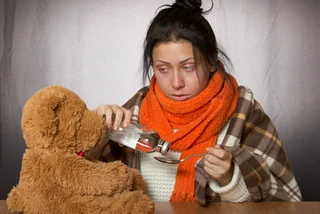A continuing decline of new COVID-19 cases in the Czech Republic could allow shops and certain services to reopen Monday, Health Minister Jan Blatný told Czech Television.
According to the latest data provided by the Czech Health Ministry this morning, the Czech Republic reported 4,377 new cases on Monday, the latest in a steady decline of new coronavirus cases in the country. Saturday's reported new cases - 1,509 - marked another new low for the case numbers.
But that low tally came after just 6,981 tests were performed, more than a third of the usual number of tests performed during the week. The number of tests performed on Monday will be revealed later today.
Since March, the Czech Republic has now reported a total of just under 496,683 COVID-19 cases, the majority of which were reported in September and October. Of those, there have been 405,982 recoveries, with 83,296 known active cases.
There are currently 5,296 COVID-19 patients in Czech hospitals, with 839 of those in serious condition.
In light of these numbers, the country's level of risk on the anti-epidemic system PES will change. Under PES, the country has moved from the fifth level of risk to the fourth stage today. Moving to the fourth stage is associated with the relaxation of some measures, but those measures can only be relaxed if the country maintains the current risk score for seven days.
Blatný has said that normally, the situation would be assessed on Tuesday - but the government plans to meet on Sunday to speed up the process and hopefully allow certain services and shops to reopen on Monday.
"Under normal circumstances, this would not be submitted to the government until next Monday. And that would mean that shops and other establishments could not open until Tuesday," Blatný told ČT. "But precisely because we are trying to cater to everyone - sole traders, traders, operators, we have agreed that the government will meet on Sunday."
Some shops would be allowed to reopen with a limited number of customers inside, restaurants could be open during the day and certain service establishments could open. In addition, there would be no more night curfew and the possible number of people at mass events would increase.
Mathematician René Levínský from the Center for Modeling Biological and Social Processes has warned, however, against such early optimism. Prague has always been slightly ahead of the rest of the country when it comes to COVID-19, and the numbers show a possible stagnation at PES Level 3.
The number of new cases in the country in the past few weeks doesn't describe the full situation in Prague, according to Levínský. The amount of tests is key, he said, and in some places you have to travel more than 50 kilometers to test for COVID-19.
"So what we have seen in the last ten days, low numbers of new positives, does not fully capture the scope of the pandemic. I would take the numbers from Prague much more seriously, where we are not limited by testing capacities and we see stagnation," the mathematician said. "One Thursday is the numbers of the newly positive 486 and the other 492. It is great that we do not see significant growth, but we really do not know what will happen next given what I said. We are in a situation that is unstable."
The most-affected localities in the Czech Republic over the past two weeks continues to be Havlíčkův Brod, which has reported about 552 new cases per 100,000 residents over the past week, and Svitavy, with about 485 cases per 100,000 residents in that span.
The Czech Republic is no longer the most affected state in the EU; the country now ranks 8th in the EU, with about 727 COVID-19 cases per 100,000 residents, according to the European Centre for Disease Prevention and Control.
However, the Czech Republic still continues to have one of the highest death rates in Europe in COVID-19-related deaths per 100,000 people at 22.












 Reading time: 3 minutes
Reading time: 3 minutes 

























